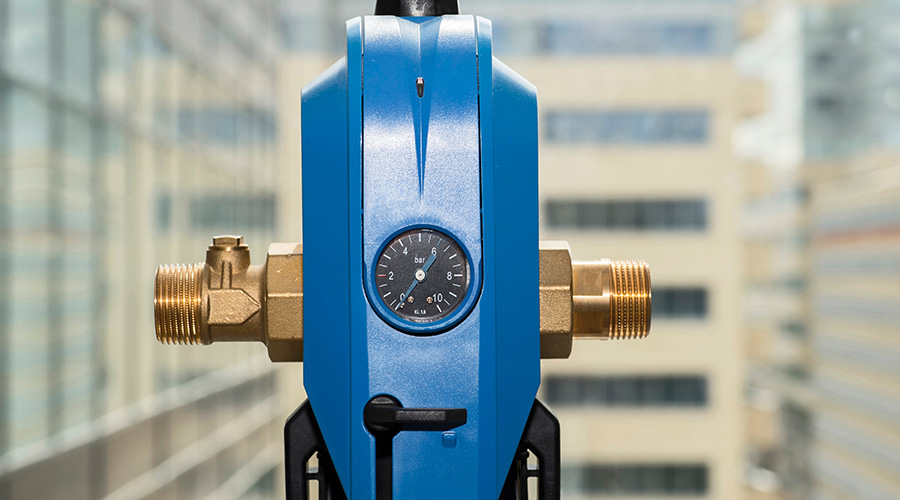Water Treatment Can Extend Boiler Life and Improve Energy Efficiency
July 27, 2012
Today's tip from
Building Operating Management comes from James Piper, contributing editor for
Building Operating Management and
Maintenance Solutions magazines. Establish a water treatment program to ensure boiler efficiency and reliability.
Water treatment is one of the most important elements in any boiler maintenance program. Untreated boiler water contains contaminants that include dissolved minerals, gasses and particulates.
Dissolved minerals can result in the formation of scale on boilers' heat-transfer surfaces. Gasses can form corrosive compounds that attack surfaces. Suspended particulates can contribute to both problems.
Boiler scale forms when dissolved mineral salts in the water settle on heat-transfer surfaces. This scale acts as a layer of insulation, reducing the rate of heat transfer and the boiler's efficiency. Even a thin layer of scale can reduce efficiency by 10 percent or more. Scale also can result in localized overheating of a boiler tube. Uncorrected, this issue can lead to boiler tube failure, downtime and costly repairs.
Dissolved gasses, such as oxygen, can increase the boiler water's corrosiveness. As a result, metal surfaces in the boiler and heating system come under attack. If technicians do not correct the problem, the resulting corrosion can destroy metal surfaces, decreasing the service life of the boiler and system piping.
Water-treatment programs introduce limited quantities of certain chemicals that combine with impurities in the water and neutralize the impurities to keep them in suspension.
Facility managers should design and monitor water-treatment programs carefully. Using the wrong chemicals — or the wrong quantities — can damage the boiler or other system components. Monitoring is essential because changes in feedwater quality can require changes in the treatment program.
Water-treatment programs are most critical in steam systems. These systems have much higher requirements for make-up water, which contains contaminants that can damage boiler surfaces.
This has been a
Building Operating Management Tip of the Day. Thanks for listening.
Next
Read next on FacilitiesNet







